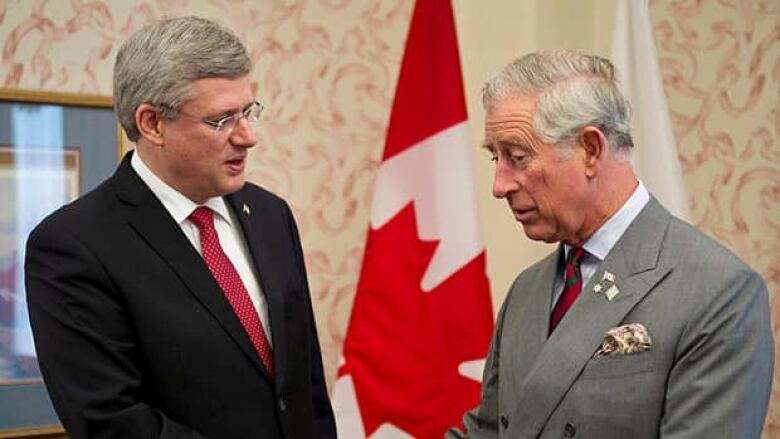Royal succession bill raises religious questions
Will the British throne cut its ties to the Church of England?

Prince Charles is said to be concerned that changes to the relationship between the Crown and the Church of England have not been thought through.
Despite the fact that the current bill to change the rules surrounding the Royal line of succession only removes the current ban on marrying a Roman Catholic, itcould bethe first steps ona slippery slope.
The Daily Mail reported earlier this month thatthe man who is first in line to inherit the throne from his mother, Queen Elizabeth,raised his concerns about the "rushed" bill in a private government meeting, fearing "unintended consequences" from some of its features.
The popular British tabloid also reported that some Church of England bishops sharedhisworries about what might happened if the son or daughter of Prince William and Catherine, Duchess of Cambridge first married a Roman Catholic and then had to confrontthe Catholic canon law requirement toraise that child as a Roman Catholic.
During second reading debate in the British House of Commons last week, Sir Tony Baldry, a veteran Conservative MP who also carries the responsibility of officially representing the Church of England in the British Parliament, saidthat churchleaders had no objections to the changes meant to modernize the monarchy.
But the bill could be seen asa first small step towards de-coupling the Royal familyfrom its historic relationship with the Anglican church.
'Defender of [all?] Faith'
The Prince of Walesmused in 2008 about wanting to alter the Royal title he receives on his eventual coronation day, from "Defender of the Faith"held by all British monarchs since Henry VIII to "Defender of Faith," in recognition of the multicultural country and Commonwealth over which he would reign in the 21st century.
But in a speech last May, Queen Elizabeth appeared to defend the existing title and what it symbolizes.
"[The church's] role is not to defend Anglicanism to the exclusion of all other religions, instead the church has a duty to protect the free practice of all faiths in this country," she said.
The monarch's role as the supreme governor of the Church of England is essentially ceremonial and may not need to restrict a king or queen's personal religious practice.
King James II was both a Roman Catholic and the head of the Church of Englandin his brief tenure although no Catholic has reigned since he was deposed in 1688.
The Act of Settlement, passed in 1701 and still in effect, says that only Protestants can become king or queen.
The new legislation doesn't alter that, butit doesremove the ban on marrying Roman Catholics.
No ban exists on marrying another faith because doing so would have been unthinkable when the current rule was written centuries ago.
British Deputy Prime Minister Nick Clegg, the government spokesman for theU.K. legislation, said during theCommons debate at Westminister last week that there is nothing in the bill's provisions that alters thestatus of the monarch as head of the Church of England.
For now, the greater question about whether a religious role or title should be an entrenched part of the monarchy waits for another day.
Present-day compromises
When Prince Michael of Kent (Queen Elizabeth's first cousin) married a Catholic, papal dispensation was sought to waive the Catholic obligation under canon law to raise the children as Catholic. His children remain in the line of succession.
Reports suggested Prince Charles finds this potential solution to the issue going forward "unsatisfactory" and "unconvincing."
Canadian Autumn Kelly, the wife of Princess Anne's son Peter Phillips, renounced her Roman Catholic faith at the time of her 2008 marriage to the Queen's grandson. Phillips is 11th in line to the throne.
For Canada's part, its own Anglican church has been independent of the Church of England for decades, so whether or not the British Crown continues to head the Church of England doesn't really apply here: Canada's monarch is not the symbolic head of any Canadian church, and Canada has had its ownCrown since 1931.
Still, the written assurances provided by the Harper government last month include an agreement to remove the ban on marrying a Roman Catholic in Canada's new bill.
For their part, Canadian churches don't appear to be active in the debate.
"It's not on our radar," Sam Carriere from the Anglican Church of Canada said.
Ren Laprise, the communications officer for the Canadian Conference of Catholic Bishops, said his organization had "no comment" on the changes either.












_(720p).jpg)


 OFFICIAL HD MUSIC VIDEO.jpg)
.jpg)



























































































